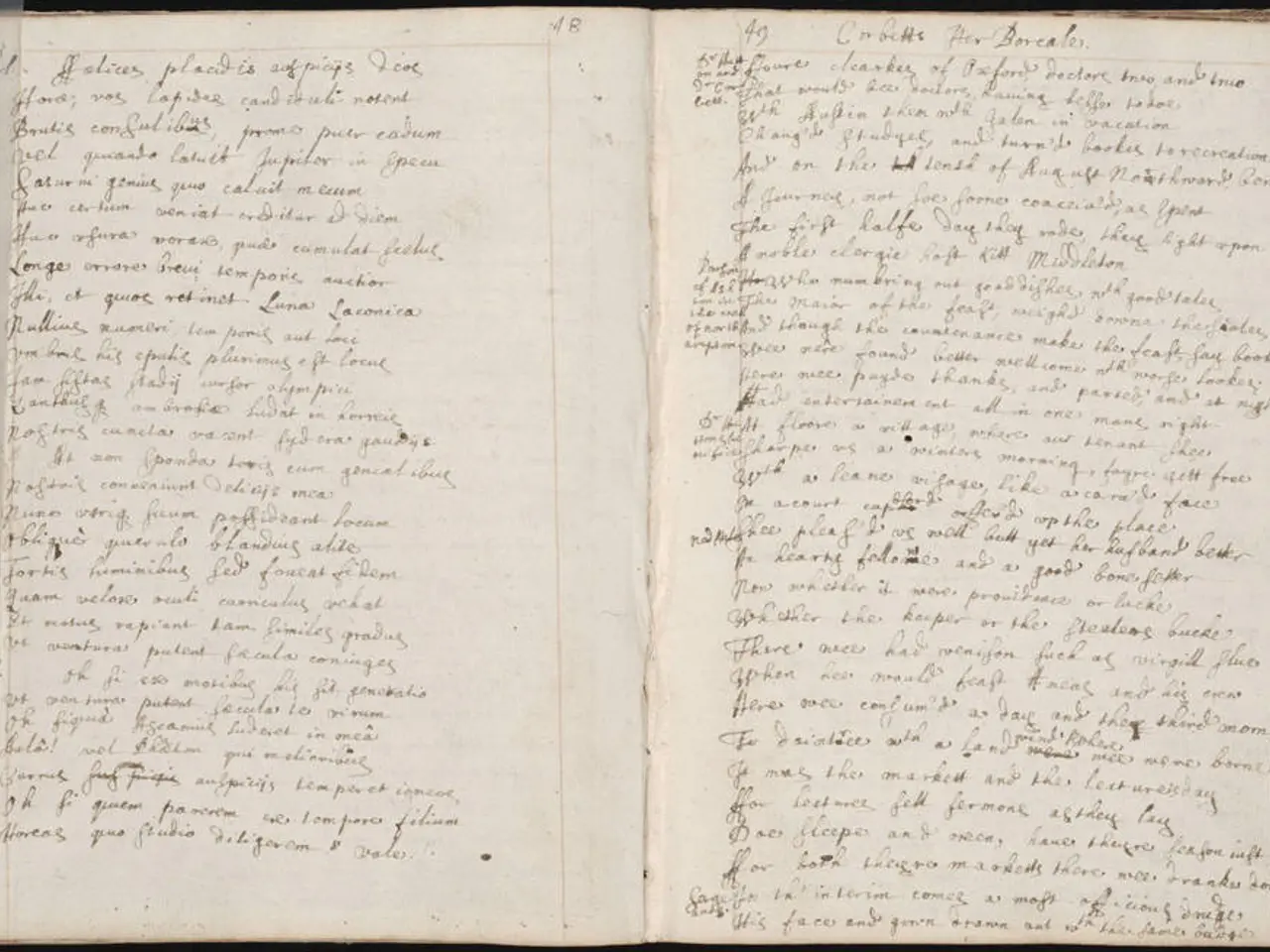Tips for Composing an Effective Book Review
Jacqui Murray, a renowned author and Amazon Vine Voice book reviewer, shares her insights on writing engaging and informative book reviews. With a reading habit of tackling an average of three books per week, Murray has honed her skills in reviewing a wide variety of genres.
Murray's template for what to avoid in reviews includes steering clear of statements like "This isn't my favorite genre" and opinionated reviews. Instead, she advises being concise and focused, striving to provide meaningful insights without letting personal biases overshadow the review.
In her approach to reviewing, Murray emphasises respect and humility, ensuring that her reviews are constructive and helpful to readers. She also encourages reviewers to cite multiple sources and provide linkbacks for statements, backing up their conclusions with evidence.
When it comes to specific elements to avoid, Murray's guidelines suggest:
- Avoid excessive spoilers that reveal major plot twists or the ending, which can diminish readers' interest.
- Avoid overly vague or generic statements that don’t provide meaningful insights about the book.
- Avoid personal biases that overshadow the review, such as unrelated criticisms or excessive negativity without constructive feedback.
- Avoid overly technical jargon that may alienate general readers unless clearly explained.
- Avoid book recap without critique, as reviews should analyze and evaluate, not just summarize.
- Avoid being overly long or overly brief; a well-balanced review is concise but substantive enough to inform readers.
Murray also advises reviewers to read a wide selection of reviews to understand what critics include in their reviews. She emphasizes the importance of including a compelling voice, developed characters, and a well-paced plot in reviews.
Critics, according to Murray, offer advice to help readers decide whether to read more from an author. They should strive to evaluate, not to judge authors. Long reviews should contain substantial information, not excessive wording. Lastly, Murray advises against comparing debut novels and established series directly, as each should be evaluated on its own merits.
By following these guidelines, book reviews can become more effective and appealing to readers, providing them with valuable insights and helping them make informed decisions about their reading choices.
Educators and self-developers looking for insightful book reviews on education-and-self-development may find Jacqui Murray'sreviews informative and engaging. In her reviews, Murray avoids excessive spoilers, personal biases, and overly vague or generic statements, providing well-balanced, constructive, and helpful reviews backed by evidence and multiple sources.




